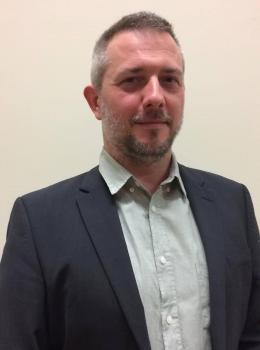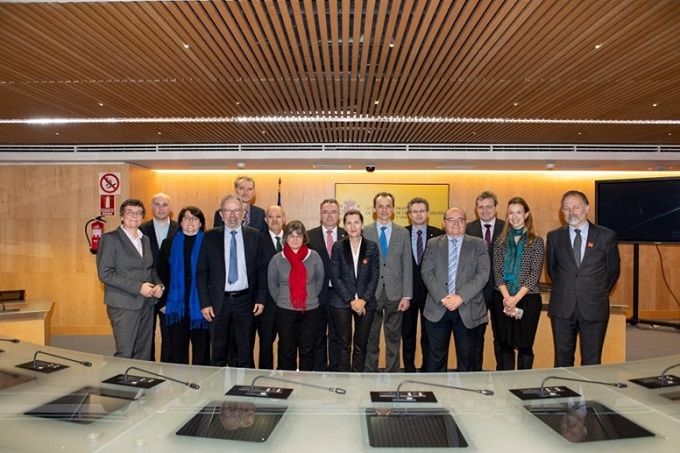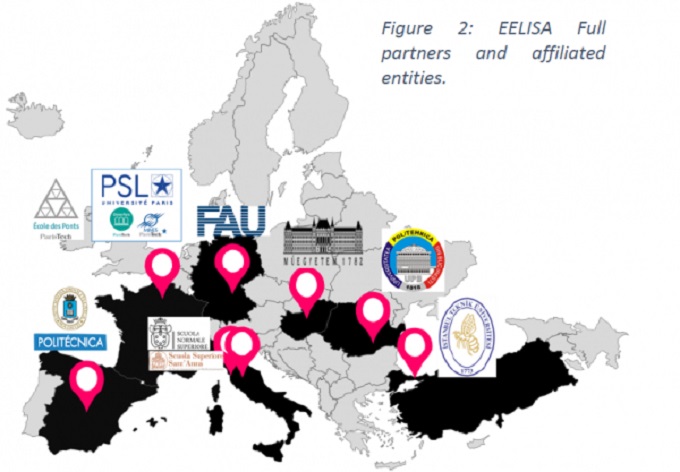2021. August 08.
BME’s EELISA unit invites students to develop ideas and work together.
 |
“The work with foreign university partners has begun and we will announce specific programmes and invitations within BME in the near future,” said László Gergely Vigh, director of the Directorate of Foreign Language Programmes (Rector’s Cabinet) in response to bme.hu’s question about the European Engineering Learning Innovation and Science Alliance (EELISA), an organisation mostly involving technology universities. He added that “this new European university alliance will, in the near future, create joint training programmes that all of our students will be able to attend. The highest achieving students who complete the academic programmes of the international partners in full will also be able to obtain the EELISA European engineering degree. Currently, there are two areas where we have started developing syllabus and programme details: Smart, Green and Resilient Cities and Sustainable Smart Industries/Industry 4.0. Some components of these programmes are expected to be available from as early as this autumn.” |
“The mission of the consortium is to create a new European education model through which to define the “European engineer”: a professional who is ready to work within interdisciplinary, multilingual and diverse pan-European environments. EELISA aims to encourage knowledge and technology transfer, to apply a comprehensive approach to engineering education through interdisciplinary engineering learning,” László Gergely Vigh explained.
He also said that long-term collaboration with EELISA offers a variety of benefits for BME: the partnership allows BME to strengthen its ties in education and research with prestigious European institutions by building an international community. The EELISA consortium is led by the Polytechnic University of Madrid (Universidad Politécnica de Madrid) and includes BME, the Friedrich-Alexander-Universität Erlangen-Nürnberg from Germany, the French École des Ponts ParisTech, the Université Paris Sciences et Lettres French university alliance and its two affiliated engineering schools – the Chimie ParisTech PSL and the Mines ParisTech PSL – the Scuola Sant’Anna and Scuola Normale Superiore from Italy, the Universitatea Politehnica din Bucuresti from Romania and the İstanbul Teknik Üniversitesi from Turkey as members. The European Network for Accreditation of Engineering Education (ENAEE) is involved as an associated partner.
By offering a flexible education system, EELISA wishes to allow a large number of students to develop their engineering knowledge. Students will not be required to complete the whole programme as engagement will also be recognised at levels other than credit collection. Higher levels of activity, such as a one-semester partial transfer, regular involvement in EELISA’s activities and communities, will be rewarded by a diploma supplement.
“We are also working on a common EELISA recognition system,” stressed László Gergely Vigh. There are numerous options: programmes completed in full or in part, specific subjects completed at another university, international industrial traineeships, short or long term, physical and/or virtual mobility, engagement in challenge-based communities etc. Their mid-term objective is that 100% of the students be engaged in the programme at least at “recognition” level and be members of an EELISA community,” he said speaking about their goals for the near future.
Sharing information on their plans, László Gergely Vigh said that the EELISA project will first invite the students and the teaching staff of the partner universities to help identify the challenges and build communities. The unique approach EELISA uses as the key elements of collaboration is the so-called communities and challenges. Challenges may be presented by anyone: a student, a teacher, a researcher or a market player but the goal is to find a solution to them together. “Challenges, in general, are global problems (such as sustainable development) and related issues to be addressed in specific disciplines. Of course, the system is open: any challenge may be the basis of collaboration,” said László Gergely Vigh. “Communities are used in a broad sense: they are the place for education, research, innovation and public debate in equal measure, strengthening engineering connections with society. These challenge-oriented multidisciplinary communities bring together students, teachers, researchers, university staff, industrial partners, as well as public and social organisations etc. The technology infrastructure to start, find and build a community will be provided by the EELISA portal,” the director added.
He also said that the consortium already has its governing bodies in place and there are working groups carrying out operational duties where BME is also working on important tasks. BME set up an EELISA coordination body including representatives from all relevant key organisational units. The operational tasks of project implementation, similarly to the details of a shared syllabus, are developed by the working groups set up based on various themes and tasks. These working groups will address the issues of accreditation, communities, industrial traineeships, research, development and innovation, student life, mobility and education.

Ministerial reception, Madrid, EELISA
As one of the winners of the Erasmus+ European University Alliances pilot call, EELISA was chosen last July to receive a total of EUR 5 million for three years from the European Commission. In response to the pilot call in 2020, over 500 universities set up a total of 62 alliances, out of which 24 were chosen to receive EU funding. “As one of the palpable results of the collaboration, our students and teachers will be able to participate in joint programmes and industrial traineeships with the consortium partners, strengthening mobility,” said László Gergely Vigh adding that EELISA won additional funds at a H2020 European call to facilitate collaboration in the field of research.

“One of our key communication channels will be the upcoming eelisa.bme.hu website, sharing regular information on the achievements of the project while up-to-date information is also available on EELISA’s central website (eelisa.hu). We encourage everybody to join EELISA if they want to be actively engaged in this ground-breaking initiative which will have a massive impact on the engineers of the future. You can also connect us with any queries, comments or proposals at eelisa@bme.hu,” said László Gergely Vigh, the director of the Directorate of Foreign Language Programmes (Rector’s Cabinet) concluding his interview with bme.hu.


